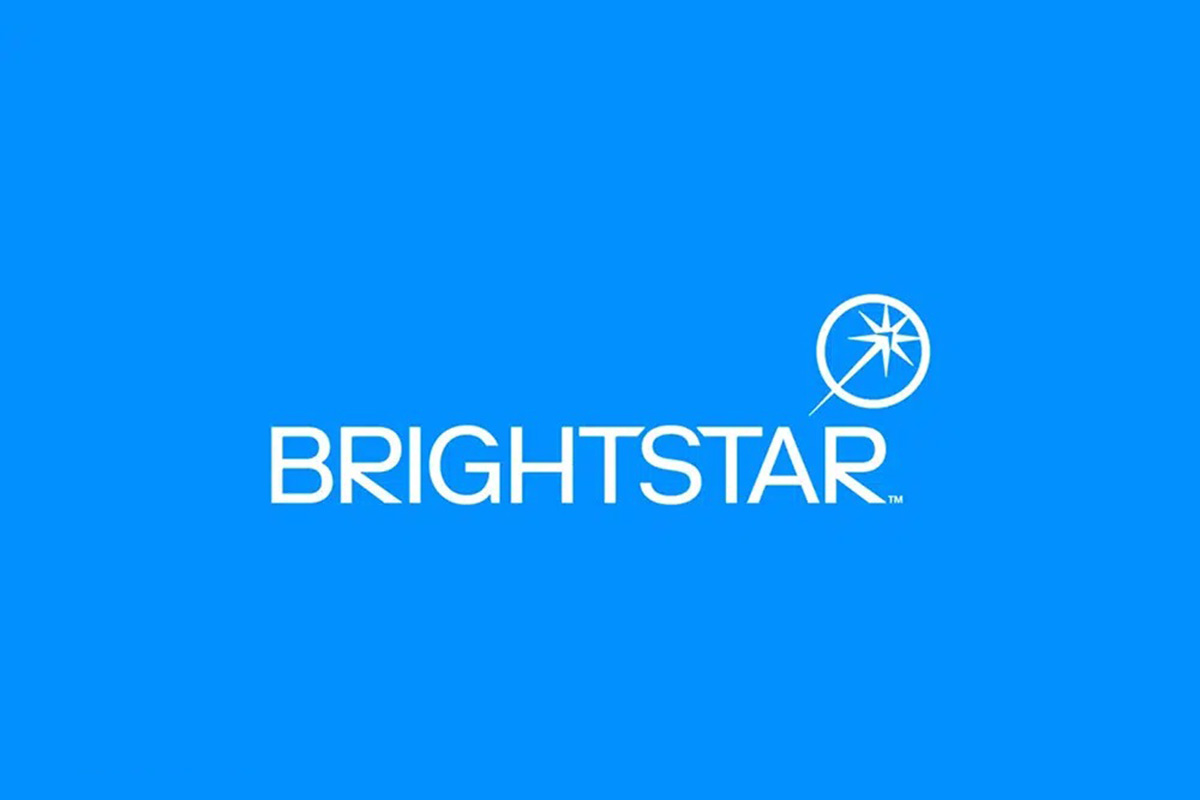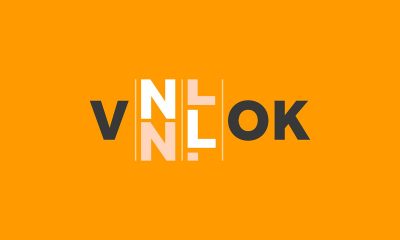Canada
Can Mobile Sports Betting Help Rebuild The New York Economy? BonusSeeker Speaks To Senator Addabbo

The following is an interview with Senator Addabbo, by BonusSeeker.com.
When the state of New York was facing a budget hole eclipsing $6 billion at the close of 2019, it was hard to imagine a scenario in which things could be much worse.
Fast forward a few months and the financial situation has gone downhill exponentially as the Empire State remains one of the most affected states by COVID-19 in every conceivable way.
Monetarily, the state is in absolute disarray for the foreseeable future because of the massive toll the pandemic has taken. But do you know what would help ease that burden? Legalizing mobile sports betting.
New York Desperately Needs New Revenue Streams
The truth is that New York needs new ways of generating revenue now more than ever before, and the millions that could be made by regulating online sports betting and allowing residents to play via mobile devices would undoubtedly assist in closing a still-growing gap in the state budget.
Perhaps nobody knows this better than Senator Joseph Addabbo, who is chairman of the New York Racing, Gaming and Wagering Committee and author of the legislation to legalize mobile wagering in the Empire state (Bill S17D).
“In light of this coronavirus, which has crippled us financially, we need the revenue now and we need the revenue next year when there is no federal stimulus money coming in,” the Senator said to BonusSeeker‘s Brian Sausa, in reference to the multiple packages that congress has passed to help states amid the pandemic. “The market calls for the mobile device, that’s when you maximize your revenue and your activity.”
New York’s financial woes are nothing new, and Addabbo has been the most vocal proponent of online sports betting in New York long before COVID-19 hit.
But whatever tough times were ahead as 2019 came to an end, the situation quickly got worse than anyone could have expected, and much faster.
According to budget documents, New York’s $6 billion deficit was on track to pass $8 billion by 2023, which would signal the deepest financial crisis since 2010 when the state was dealing with a $10 budget gap during the recession.
But as a result of the pandemic further ravaging the state economy, a report released in April from Governor Andrew Cuomo’s budget office finds that the gap could reach a staggering $13 billion in 2020 alone, shattering the mark from a decade ago.
These figures aren’t any fun to face, but they are important because they help paint a picture of the seriousness of the financial desperation that the state is facing.
As is the case with most aspects of our society, the sports landscape currently looks nothing like the one we’re accustomed to. At some point, however, leagues will come back and sports betting will go back to being the lucrative industry it has proven itself to be over the past two years.
Raising taxes and handing out more traffic tickets, two things New York is already looking into, may always be popular ways to fill a massive budget gap, but they can’t be the only courses of action.
New York Already Allows Sports Betting, But It’s Not Mobile
It needs to be noted that sports betting in New York is legal, just not in its ideal form. The state legalized wagering on athletic events in 2013, and following the repeal of PASPA in May 2018, operations launched some 14 months later.
The issue is that it was and still is limited to land-based casinos (which are mostly in the northern part of the state) with no provisions for online betting, which is the game-changer in terms of revenue creation.
Addabbo, whose 15th District covers parts of South Queens in New York City, is one of many legislators whose constituents aren’t in a position to take part in sports betting in the state as the law currently allows.
“I love Resorts World-Catskills, I think they did a phenomenal job at the site, but my people are not driving two hours north to go place a bet. They’re driving 20 minutes to Jersey. There lies the problem.”
The Senator is touching on a much larger issue at hand in the Empire State. Without any downstate casinos and so much of the population and betting demographic located in and around New York City, can the state really afford to continue losing out on revenue to New Jersey?
Making the betting experience exponentially easier for bettors by including the mobile component could wind up going an extremely long way because as the Senator notes, the public prefers simplicity.
“People look for convenience. They look for what’s safe for them, what’s legal, but they look for convenience…they go across the border to [New] Jersey because it’s simple.”
How Is New Jersey Mobile Sports Betting Working Out?
If any state out there is looking for a blueprint on how to roll out mobile sports betting, look no further than neighboring New Jersey for an example of the impact it can have.
In 2019, the first full year of regulated sports betting in New Jersey, the state took in nearly $4.6 billion in wagers, which resulted in around $300 million in total revenue. Once factoring in tax rates, that’s $36 million that went straight to the state and local governments.
Considering the fact that well over 80 percent of the wagers in the Garden State are placed on a mobile device, New Jersey is evidence of how vital the online component is to the overall earning capability of sports betting.
The potential in New York can be actually seen in the figures coming from its neighbor, and it only makes the case for online wagering in the Empire State even stronger.
A study from research firm Eilers & Krejcik Gaming reported that in 2019, New Yorkers placed an estimated $837 million total in sports bets in New Jersey.
That was about one-fifth of the total amount wagered in the Garden State throughout the year, a direct result of New York residents crossing the border to wager or calling friends and relatives in New Jersey to place wagers.
Factoring in taxes, that amount bears out to nearly $60 million in total revenue and about $6 million in taxes for the state. That number may not sound very high but consider the fact that part of the tax revenue generated from sports betting goes straight to job creation and funding educational programs in the state.
In total, over 38 million Americans applied for unemployment in a span of just over two months with over 1.5 million claims coming from New Yorkers as of the first week in May. Is any amount of money or number of jobs too small to help the residents of New York?
Besides, once you add in all the factors that come with enacting mobile wagering in New York, that number explodes. The study estimated that the Empire State is missing out on over $200 million per year by leaving online sports betting off the table.
For comparison, sports betting at land-based venues produced a grand total of $6.8 million in revenue from the time it launched in July through the second half of the year.
It’s also worth noting that the state has unused gaming licenses, which according to Addabbo’s bill, could be sold for $12 million apiece in initial fees.
“They [the licenses] are sitting on a shelf, doing nothing for us. Making no revenue, creating no jobs, no educational funding. They’re sitting there until the year 2023,” said Addabbo.
Will Cuomo Get On Board With NY Mobile Sports Betting?
The biggest hurdle that comes with attempting to pass this legislation is getting Governor Cuomo to change his mind.
Seemingly, part of what has given the governor pause is the issue of addiction and the possible negative impact that wide-ranging legal sports betting could have on the public. Even that, however, is something Addabbo’s bill has covered.
“I understand the governor may have apprehension about the pitfalls of gaming. Well, we took care of that,” the Senator points out. “Our gaming commission has been given accolades nationally for the programs that deal with addiction issues. The idea here is that we cannot move forward in terms of gaming in our state without addressing simultaneously the critical issue of the addiction part. So, I’m confident we will.”
The governor has already left mobile sports betting off the budget for the fiscal year 2021 and seemingly categorized these types of gaming as “creative although irresponsible revenue sources” in his address back in January.
Since the most important issues have been addressed and New York has now felt the wrath of COVID-19, the question needs asking: just how responsible would it be to continue leaving upwards of $200 million per year on the table when the state is in dire need of budget relief?
“What we have tried to do was convince the governor that certainly, the numbers are there,” Addabbo points out. “Whether it’s money lost to New Jersey, whether it’s money lost to an illegal activity that doesn’t appear on tax returns, it’s money that’s not there to gain for our state.”
It’s a simple fact that New York needs the revenue and it’s quite incomprehensible at this point to see sports betting as a perfectly viable option for revenue generation, especially considering what state residents are already allowed to wager on.
New York Has Legal Gaming, Just No Online Sports Betting
The benefits that the state can reap from sports betting are the same ones it always enjoys from other resources, and Senate Bill 17D is merely attempting to add to the ways in which New York generates tax revenue.
“It’s not like we’re re-creating the wheel, we have it here already,” Addabbo explained. “We have it in terms of Mega, Powerball, Lotto, we already have it. We already have casinos, we already have sports betting. We already have all the elements of gaming in our state.”
The governor has attempted to camp himself on the moral high ground but it exposes the contradictory nature of the logic being applied to this issue.
We are all free to wager our hard-earned dollars on the state lottery with hopes of walking away with more money than we had before, and we can even track the results online. On its most basic level, that process doesn’t really differ from placing a sports bet.
Anybody can drive upstate to one of the several New York casinos with legal sports betting and place a wager, but doing it from the comfort of your own living room is an irresponsible way for the state to make money?
The case for legal sports betting in New York is clear-cut and convincing, but obviously the job is not done. The last hope for Addabbo and other proponents of getting this done in 2020 is a study to be done by the state gaming commission, which should have its final report released sometime in June.
“That may be a telltale sign of where we go forward with this issue,” Addabbo says. “I am pushing to do it this year. Mobile sports betting, the three licenses, this year. Until December 31st, that’s my push.”
The governor’s approach to the difficult times the state has faced in recent months has been very matter-of-fact. If that same pragmatism gets applied to mobile sports betting, it will become obvious that it has all the tenants of becoming a vehicle in which the state can use to help drive itself out of the financial ditch it currently lies.
The question now becomes whether New York is finally ready to take advantage of the opportunity.
SOURCE BonusSeeker.com
Powered by WPeMatico
Canada
High Roller Technologies Signs Letter of Intent with Kindbridge Behavioral Health to Support Responsible Gambling in Ontario

High Roller Technologies Inc., operator of the award-winning, premium online casino brands High Roller and Fruta, announced it has entered into a non-binding Letter of Intent (LOI) with Kindbridge Behavioral Health (Kindbridge) to support its commitment to responsible gambling in Ontario, subject to licensing and regulatory approval.
Through the planned partnership with Kindbridge, High Roller intends to offer eligible Ontario players who choose to self-exclude a confidential pathway to support that helps individuals understand their options and take next steps at their own pace. The experience begins with education and a guided triage process, followed by the option to connect with no-cost peer support and, when appropriate, licensed Canadian clinicians. Using a stepped-care approach, individuals can start where they feel ready and access additional support over time, based on their needs and goals.
“We believe entertainment should always be enjoyed responsibly. Partnering with Kindbridge reinforces our commitment to player wellbeing by ensuring that anyone who may be experiencing challenges with their gambling activity has access to meaningful, professional support. This collaboration reflects our responsibility not only as an operator, but as a trusted brand that puts people first,” said Seth Young, Chief Executive Officer at High Roller.
Kindbridge works with gaming operators across North America to deliver early-intervention programs designed to identify, assess, and support at-risk individuals, including integration with self-exclusion and responsible gaming workflows.
“Building strong, accessible pathways to support is an essential part of effective responsible gambling programs.nOperators are uniquely positioned to assist individuals who may be experiencing distress by helping connect them to appropriate care. We’re proud to work with High Roller to expand access to specialized clinicians and evidence-based resources, supporting healthier outcomes for players and more effective responsible gambling frameworks,” said Daniel Umfleet, Founder & CEO of Kindbridge Behavioral Health.
Seth Young, who currently serves as Chief Executive Officer of High Roller, is a current shareholder, member of the Board of Advisors, and former member of the Board of Directors at Kindbridge.
The post High Roller Technologies Signs Letter of Intent with Kindbridge Behavioral Health to Support Responsible Gambling in Ontario appeared first on Americas iGaming & Sports Betting News.
Brightstar Lottery PLC
Brightstar Lottery Delivers Industry-Leading Sales Force Automation Solution to Ontario Lottery and Gaming Corporation

Brightstar Lottery PLC announced that it has deployed its Sales Wizard salesforce automation tool to the Ontario Lottery and Gaming Corporation (OLG). Brightstar’s powerful, cloud-based Sales Wizard easily integrates with OLG’s central system and equips sales representatives with actionable insights and compelling data to identify lottery retail opportunities and make every retail visit more effective.
“Brightstar’s Sales Wizard is enabling OLG’s sales force with digital access to actionable data while unlocking operational efficiencies so that our sales representatives can make the best use of every retail visit. Sales Wizard is highly configurable so OLG can leverage this product in a variety of ways to meet our evolving business needs,” said Vanessa Theoret, OLG Sr. Director Retail Sales & Account Management.
“OLG joins 24 other lotteries in using Brightstar’s Sales Wizard to help responsibly grow sales. Sales Wizard was designed to be a flexible, convenient tool for lottery sales representatives to work strategically with retailers, providing data, reports, and insights to understand sales trends and optimize as needed,” said Scott Gunn, Brightstar Chief Operating Officer North America Lottery.
Sales Wizard is the industry-leading sales force automation tool that provides sales teams with timely, relevant information and is available in user-friendly mobile apps for greater efficiency in the field. Currently supporting more than 148,000 retailers globally, Sales Wizard provides data and insights on sales, instant ticket inventory, instant ticket facings, point-of-sale equipment and signage, and much more.
Brightstar serves nearly 90 lottery customers and their players on six continents.
The post Brightstar Lottery Delivers Industry-Leading Sales Force Automation Solution to Ontario Lottery and Gaming Corporation appeared first on Americas iGaming & Sports Betting News.
Canada
ComeOn Launches New Marketing Campaign in Ontario

ComeOn Group has launched its new marketing campaign in Ontario. The campaign underscores ComeOn Group’s long-term commitment to sustainable expansion – powered by ComeOn’s proprietary technology and a clear focus on delivering standout, personalized entertainment experiences at scale.
Since entering Ontario in 2022 with its licensed online casino offering, ComeOn Group has steadily built its presence in one of North America’s most competitive regulated markets. In late 2024, the Group reached a major strategic milestone with the launch of its full proprietary sportsbook in the province, expanding its product portfolio and strengthening its position as a full-suite iGaming operator.
The addition of sportsbook enables ComeOn to offer both casino and sports betting within a unified entertainment ecosystem. This expansion aligns with the Group’s broader global strategy to accelerate sportsbook growth, leveraging its in-house platform, trading capabilities, and risk management expertise to scale efficiently across regulated jurisdictions.
To support this next phase of growth in Ontario, ComeOn Group has shifted to an independent media planning model, activating a bold, high-frequency presence across Linear TV, Connected TV (CTV), and Digital channels. This approach reflects the Group’s product-led philosophy- pairing increased brand visibility with a seamless, personalized player journey powered by a robust, in-house technology stack built for performance and scale.
At the centre of the campaign is a series of premium television commercials starring Jeremy Piven, a long-standing ComeOn brand ambassador. Piven’s high-energy presence and authentic connection to sports reinforce the brand’s entertainment-first positioning, bringing ComeOn’s sportsbook experience to life across TV and digital. Produced by ComeOn Group’s internal creative hub, the campaign provides a cohesive creative platform that clearly differentiates the brand in a crowded market.
Efi Peleg, Chief Commercial Officer at ComeOn Group, said: “Ontario is a critical and highly competitive market for us. By shifting to independent media planning and activating a true 360-degree marketing mix, we’re not just increasing awareness – we’re demonstrating the strength of our proprietary platform and our ability to deliver a superior, personalised player experience. Our headline campaign, led by Jeremy Piven, brings our entertainment-first proposition to life and reflects our broader strategy of driving sustainable growth in key regulated markets through differentiated products and data-driven execution.”
The post ComeOn Launches New Marketing Campaign in Ontario appeared first on Americas iGaming & Sports Betting News.
-

 bingo halls6 days ago
bingo halls6 days agoBingo Halls and Casinos in Colombia Increased Their Contributions to Healthcare System by 9.3% in 2025
-

 Brightstar Lottery PLC6 days ago
Brightstar Lottery PLC6 days agoBrightstar Lottery Delivers Industry-Leading Sales Force Automation Solution to Ontario Lottery and Gaming Corporation
-

 Compliance Updates5 days ago
Compliance Updates5 days agoFinland Govt Looks at Whether Scratchcards can be Gifted Again
-

 Claire Osborne Managing Director of Interactive at Inspired Entertainment4 days ago
Claire Osborne Managing Director of Interactive at Inspired Entertainment4 days agoTwo new slots from Inspired — Coin Inferno Step ‘N’ Stack™ and Mummy It Up™
-

 Latest News4 days ago
Latest News4 days agoACR POKER GIVES PLAYERS A SHOT TO QUALIFY ONLINE FOR $700,000 GTD ENJOY POKER SERIES MAIN EVENT THIS FEBRUARY IN URUGUAY
-

 Canada4 days ago
Canada4 days agoHigh Roller Technologies Signs Letter of Intent with Kindbridge Behavioral Health to Support Responsible Gambling in Ontario
-

 Amusnet3 days ago
Amusnet3 days agoWeek 5/2026 slot games releases
-

 Compliance Updates5 days ago
Compliance Updates5 days agoVNLOK Report: Over 95% of Gambling Ads on Meta Platforms are from Illegal Providers



















